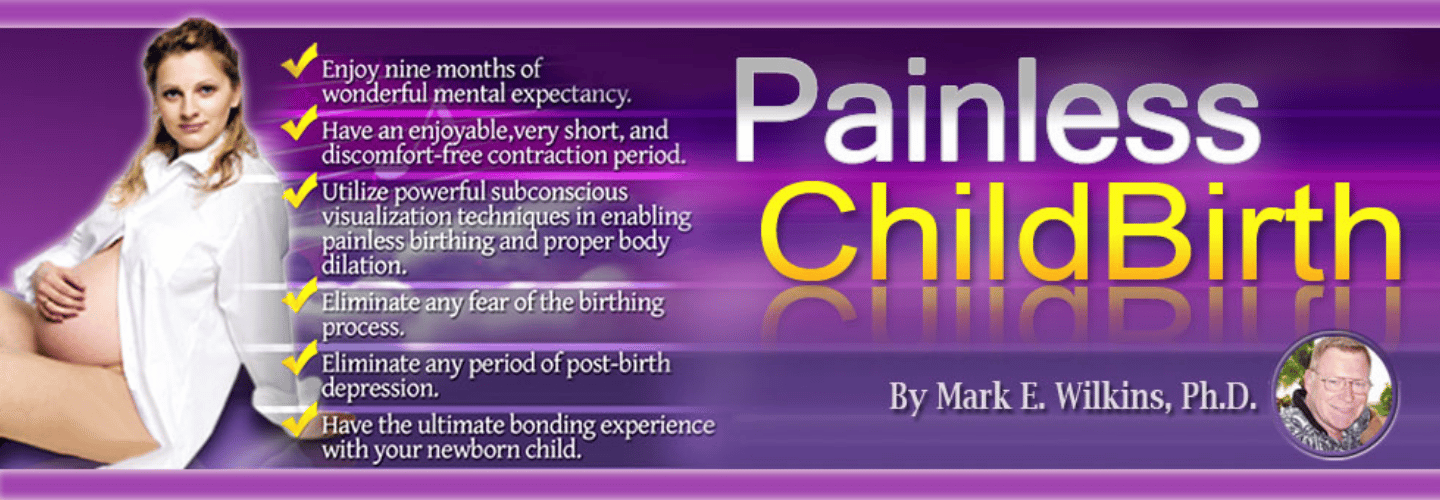
In the domain of labor pain relief, hypnotherapy emerges as a compelling tool, harnessing the power of the mind to navigate the intensity of childbirth. By delving into altered states of consciousness, hypnotherapy offers a unique avenue for women to tap into their inner reservoirs of strength and resilience, reshaping their pain experience. The question of how hypnosis can effectively transform the labor journey remains a fascinating frontier worth exploring, promising a deeper understanding of the mind-body connection in birthing experiences.
Understanding the Concept of Hypnotherapy
Revealing the power of hypnotherapy, a technique that harnesses altered conscious awareness, can greatly impact individuals' pain management and overall well-being during labor. Women using hypnosis as a part of pain relief methods during childbirth experience a unique way of coping with labor.
Hypnosis for pain is a growing trend, with hypnotherapy techniques proving to be effective in managing pain and anxiety during pregnancy and childbirth. By incorporating relaxation techniques and positive suggestions, hypnotherapy provides relief during childbirth, allowing women to dehypnotize from any negative associations with the labor experience.
The use of hypnotherapy in labor pain relief enables individuals to tap into their inner strength, reduce pain perception, and enhance their childbirth experience. Whether through practitioner-guided sessions or self-hypnosis techniques, the power of hypnotherapy shines through in helping individuals achieve a sense of calmness and control during one of life's most significant moments.
History of Hypnotherapy in Labor Pain Relief
The history of hypnotherapy in labor pain relief dates back to James Braid's introduction of the term 'hypnosis' in 1840, marking the inception of its application for managing childbirth discomfort.
Since the 1950s, hypnosis has been acknowledged as an effective technique for alleviating labor pain, with pregnant women displaying heightened hypnotizability, enhancing its benefits.
This historical background sets the stage for exploring the origins, effectiveness, and contemporary research surrounding hypnotherapy in labor pain relief.
Origins of Hypnotherapy
Dating back to the 1950s, the origins of hypnotherapy in labor pain relief trace a path of significant advancements in altering conscious awareness and enhancing coping mechanisms during childbirth. Coined by James Braid in 1840, hypnosis for pain relief gained attention in medical settings.
Pregnant women, known for their heightened hypnotizability, found hypnotherapy particularly beneficial for managing labor pain. The development of hypnotic suggestibility scales further personalized hypnosis interventions, predicting its effectiveness.
Medical hypnotherapy, recognized since the 1950s, has proven valuable in various medical contexts. The history of hypnotherapy in labor pain relief highlights its efficacy in altering conscious awareness and improving coping strategies during childbirth, making it a promising tool for expectant mothers seeking natural pain management methods.
Effectiveness in Labor
A proof of its enduring efficacy, hypnotherapy in labor pain relief stands as a beacon of hope for expectant mothers seeking natural and empowering methods for managing childbirth discomfort.
Since the 1950s, hypnotherapy has been a trusted ally in labor, with pregnant women exhibiting higher levels of hypnotizability. Medical hypnotherapy, a recognized tool for managing labor pain, has been a mainstay for decades.
Suggestibility scales play a critical role in predicting individuals' responsiveness to hypnosis during childbirth, offering personalized pain relief solutions. Coined by James Braid in 1840, the term 'hypnosis' marked a pivotal moment in the formal recognition of hypnotherapy for pain management.
Programs like Hypnobabies® and HypnoBirthing® have further solidified the effectiveness of hypnotherapy in easing labor pains, making it a time-tested and reliable choice for mothers-to-be.
Modern Applications and Research
Revealing the evolution of hypnotherapy in labor pain relief uncovers a rich tapestry of modern applications and groundbreaking research. Since James Braid coined the term 'hypnotherapy' in 1840, hypnosis has been recognized for its therapeutic role in managing pain during childbirth.
From the 1950s onwards, hypnotherapy has gained traction in the domain of labor pain relief, particularly for its effectiveness in reducing anxiety and stress levels. Studies have shown that pregnant individuals exhibit higher levels of hypnotizability, making them more responsive to hypnotherapy interventions.
The development of hypnotic suggestibility scales has further enhanced the customization of hypnotherapy techniques for individuals, ensuring tailored approaches to alleviate labor pains. Research continues to support the efficacy of hypnotherapy in enhancing the childbirth experience by minimizing pain perception and promoting relaxation.
Mechanisms of Hypnotherapy for Pain Management
Revealing the intricate mechanisms behind hypnotherapy for pain management showcases a fascinating interplay between internal focus, neural modulation, and enhanced responsiveness to therapeutic suggestions. Understanding how hypnotherapy works can shed light on its effectiveness in relieving pain, especially during childbirth.
Here are three key mechanisms at play:
- Neural Activity Suppression: Neuro-imaging studies have revealed that hypnosis can reduce the perception of pain by dampening neural activity in specific regions of the brain. This suppression contributes to a decreased sensitivity to pain stimuli.
- Enhanced Relaxation: One of the core components of hypnotherapy is inducing a state of deep relaxation. This relaxed state not only helps in managing pain but also promotes overall well-being during labor, aiding in a smoother birthing process.
- Altered Pain Perception: By altering the way individuals perceive pain, hypnotherapy can empower them to cope better with discomfort. Changing these perceptions can lead to a more positive childbirth experience and reduced reliance on traditional pain relief methods.
Research Evidence on Hypnotherapy for Labor Pain

In the field of labor pain management, research evidence highlights the potential efficacy of hypnotherapy as a complementary approach to reduce the need for pharmacological interventions. Studies suggest that hypnotherapy may decrease the overall use of pain medication during labor, focusing on affective aspects like anxiety and mood enhancement to help women cope with the pain.
With data from nine trials involving 2954 women, hypnotherapy has shown promise in reducing the reliance on pharmacological pain relief methods. This non-pharmacological option offers potential benefits in managing labor pain, potentially leading to fewer women requiring pain medication during childbirth.
However, to confirm its efficacy and safety, more high-quality randomized controlled trials are necessary. These trials should also assess outcomes such as satisfaction with pain relief and coping strategies during labor. Hypnotherapy stands out as a promising complementary therapy for labor pain, emphasizing the importance of exploring alternative approaches to traditional pain management methods.
Established Hypnotherapy Programs for Childbirth
Discover the key factors shaping the success of established hypnotherapy programs for childbirth.
Program Effectiveness Studies shed light on the real impact of these approaches in pain management during labor.
Patient Testimonials and Expert Recommendations provide valuable insights into the efficacy of Hypnobabies® and HypnoBirthing® in promoting a positive birth experience.
Program Effectiveness Studies
Several established hypnotherapy programs, such as Hypnobabies® and HypnoBirthing®, are renowned for their thorough and tailored techniques aimed at pain management in childbirth. Research on these programs has shown promising results, with users reporting positive experiences in coping with labor pain. Studies suggest that early training in hypnosis during pregnancy may enhance the benefits of these structured hypnotherapy approaches.
These programs, like Hypnobabies® and HypnoBirthing®, are known for their detailed and individualized techniques aimed at pain management in childbirth. Discover the power of hypnotherapy in revolutionizing your childbirth experience!
- Uncover the secrets behind Hypnobabies® and HypnoBirthing® for pain relief.
- Learn how structured hypnotherapy can reduce the need for pain medication during labor.
- Hear firsthand accounts of successful pain management and coping strategies during childbirth.
Patient Testimonials and Experiences
Patient testimonials and experiences with established hypnotherapy programs like Hypnobabies® and HypnoBirthing® consistently highlight significant reductions in pain perception and increased relaxation during childbirth. Users report improved coping abilities, decreased anxiety, and the need for less pharmacological pain relief.
These structured programs offer training in self-hypnosis, empowering individuals with effective pain management tools. User feedback emphasizes the sense of control gained through these techniques, fostering a feeling of empowerment during labor.
Expert Recommendations and Guidelines
When seeking expert guidance on hypnotherapy for childbirth, established programs such as Hypnobabies® and HypnoBirthing® stand out for their systematic and thorough approach to pain management during labor. These structured programs focus on teaching self-hypnosis techniques to mothers, enabling them to effectively manage labor pain. Participants in these established hypnotherapy programs consistently report positive outcomes in pain management and overall labor experience.
Expert recommendations frequently include considering these well-recognized programs for women seeking non-pharmacological pain relief during childbirth. With a proven track record and a holistic approach to hypnotherapy, Hypnobabies® and HypnoBirthing® offer mothers a reliable and effective option for a more comfortable and empowering birthing experience.
Real-Life Experiences With Hypnotherapy During Labor
Real-Life Testimonials Illuminate the Efficacy of Hypnotherapy in Labor Pain Management, Revealing a Promising Path Towards Natural Relief.
Hypnotherapy has garnered attention for its remarkable impact on labor pain relief, with users reporting decreased analgesia use and heightened satisfaction during childbirth. By tapping into the power of the mind, hypnotherapy has demonstrated its ability to alleviate pain and anxiety, offering a holistic approach to pain management that diverges from traditional methods.
Importantly, individuals undergoing hypnotherapy training have shown fewer birth complications and reduced reliance on labor augmentation, highlighting the potential of this alternative technique in promoting a smoother birthing experience.
Since the mid-1980s, research has consistently supported the efficacy of hypnotherapy in enhancing childbirth experiences, making it a compelling option for those seeking natural pain relief. With its growing recognition and positive user experiences, hypnotherapy stands as a promising avenue for mothers looking to navigate labor with greater comfort and ease.
Frequently Asked Questions
How Can Hypnotherapy Help With Pain Relief?
Hypnotherapy can aid in pain relief by leveraging the mind-body connection through deep relaxation, positive affirmations, and mental imagery.
Techniques like breathing exercises and self-hypnosis are utilized for pain management, stress reduction, and emotional support during labor.
How Does Hypnosis Work for Birth?
Hypnosis in childbirth leverages mental preparation, relaxation techniques, positive affirmations, visualizations for birth, breathing exercises, self-hypnosis methods, coping mechanisms, and the mind-body connection to manage pain effectively.
By narrowing focus, reducing external stimuli, and enhancing responsiveness to suggestions, hypnosis aids in pain management during labor.
Through hypnotic suggestions, mothers can cultivate an empowering sense of control and calmness, facilitating a smoother birthing experience.
What Are the Benefits of Hypnosis During Pregnancy?
During pregnancy, hypnosis offers a myriad of benefits, including stress reduction, anxiety management, and relaxation techniques.
It aids in pain management, strengthens the mind-body connection, and fosters positivity through affirmations and visualization exercises.
Empowerment tools and coping strategies enhance self-healing, providing expectant mothers with a holistic approach to childbirth.
These combined benefits of hypnosis during pregnancy contribute to a more positive and empowering birthing experience.
What Is Stimulation for Pain Relief in Labour?
Stimulation for pain relief in labor encompasses various techniques. These include acupuncture, TENS machines, water immersion, massage therapy, breathing exercises, medication options, position changes, heat therapy, relaxation techniques, and aromatherapy benefits.
These methods aim to alleviate discomfort and enhance coping mechanisms during childbirth. By offering a range of non-pharmacological options, women can explore different approaches to manage labor pain and improve their birthing experience.
Conclusion
To sum up, hypnotherapy in labor pain relief offers a unique approach to managing childbirth discomfort through altered conscious awareness and relaxation techniques.
Despite skepticism regarding the effectiveness of hypnotherapy, research evidence and real-life experiences support its use in enhancing the birthing experience.
By tapping into inner strength and reducing pain perception, hypnotherapy provides a promising complementary therapy for women during labor.




